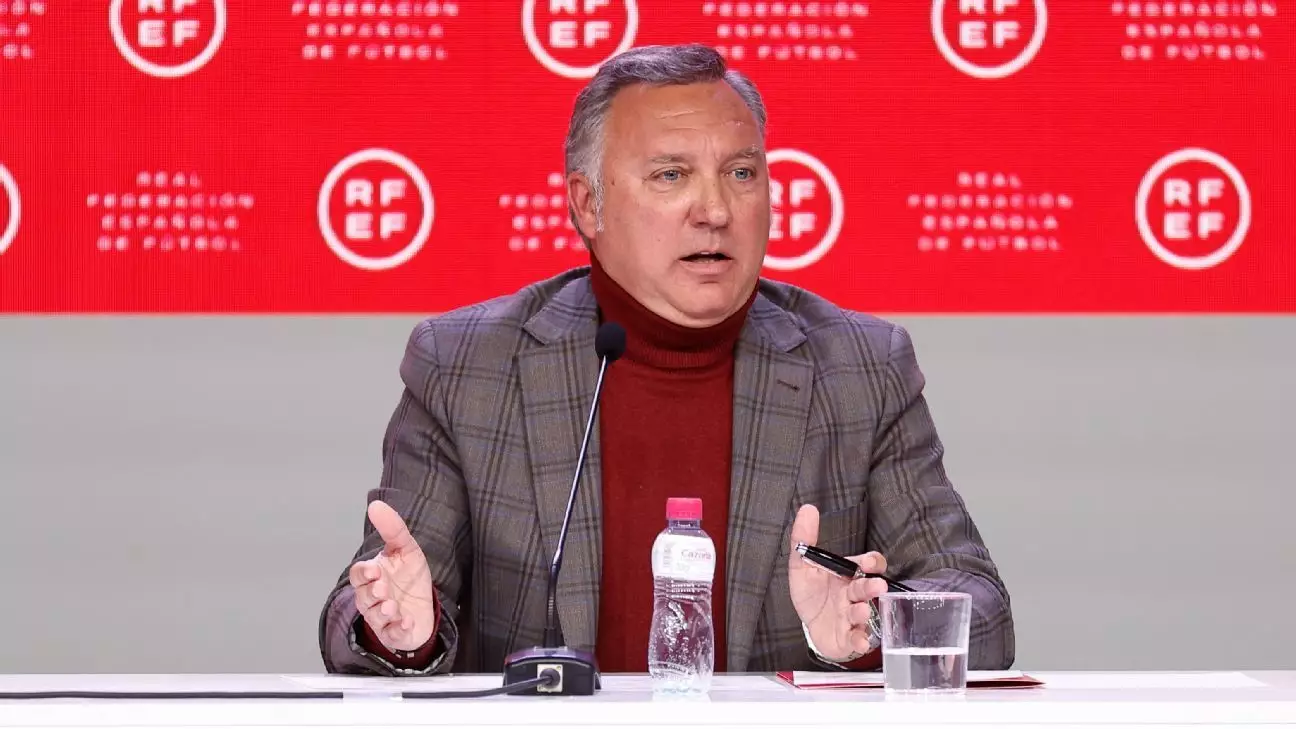Recently, the footballing world was thrust into controversy as Real Madrid publicly accused Spain’s refereeing officials of “manipulation and adulteration” following a contentious match against Espanyol. These accusations are striking not just for the weight they carry, but also for what they signify in the broader dialogue about sportsmanship and the role of authority in competitive sports. The vehement public response from the head of Spain’s Technical Committee of Referees, Luis Medina Cantalejo, unveils the complexities underpinning the criticism aimed at officiating standards in La Liga.
The Context of the Accusations
The recent match saw Madrid suffer a 1-0 defeat to Espanyol, a result that curdled into outrage as the Madrid board pointed fingers at various refereeing decisions. The focus fell heavily on referee Alejandro Muñiz Ruiz, specifically regarding his failure to eject Espanyol’s Carlos Romero for a foul on Kylian Mbappé that some perceived as game-defining. Furthermore, a disallowed goal from Vinícius Júnior was highlighted as another pivotal moment that argued against the proficiency of officiating in this high-stakes environment.
Madrid’s open letter to the Spanish football federation (RFEF) and the Sports Ministry not only called for transparency—including the release of communication between match officials—but also pushed for what they deemed necessary structural reforms in Spain’s refereeing system. This demand arises not only from this specific incident but reflects a broader ongoing discontent with presumed inconsistencies in officiating that have plagued the club in recent seasons.
In his response, Medina emphatically defended the legitimacy of his colleagues, asserting, “My colleagues and I are not corrupt.” This defense is crucial, as such statements seek to protect the integrity of officiating in a league fraught with intense scrutiny and passion. Medina admits that while referees can be “clumsy or bad,” they operate under the belief that every match presents them with the responsibility to officiate fairly.
This brings to the forefront a significant question: How do sports authorities navigate claims of incompetence versus allegations of malfeasance? The line is often blurred, particularly when the stakes are high and emotional investments run deep. Medina’s assertion that no referee arrives at a match with the intent to harm speaks to the universal challenge of accountability within competitive sports.
The outcry from Real Madrid coincides with a backdrop of ongoing investigations, particularly concerning financial dealings in Spanish football, like the Negreira case involving Barcelona. As the credibility of the refereeing authority is brought into question, it raises a pivotal point regarding the future of officiating standards in Spain. RFEF president Rafael Louzan has acknowledged the ongoing challenges, even mentioning Madrid president Florentino Pérez’s suggestion to consider foreign refereeing expertise, particularly from England, as a remedy to the existing dissatisfaction.
It is evident that the complexity of officiating extends beyond individual games; it is rooted in the collective history of player, coach, and fan interactions. The mention of employing English referees illustrates a desperation for improvement, as Spanish football grapples with a reputation that may ultimately affect its global standing.
Former Barcelona player Gerard Piqué has criticized Real Madrid’s tactics, suggesting that the club employs a strategy of deflection whenever faced with poor performance. This notion of using refereeing woes as a scapegoat can complicate discussions surrounding officiating—it can transform genuine grievances into narratives that may dismiss legitimate concerns about the games’ integrity.
Piqué’s statements suggest an essential truth: while the complaints about referees may be perennial, the context often determines their legitimacy. As clubs jockey for supremacy, interactions with referees invariably become part of the public narrative, often overshadowing the fundamental essence of the sport—competitive play.
The tumult surrounding Real Madrid’s recent outbursts regarding officiating underscores a critical reflexivity in sports. While accusations of corruption weigh heavily on referees, the complexities of human error and the necessity for improved standards should prompt all stakeholders to reflect on how to address these issues constructively. Only through dialogue, accountability, and reform can Spanish football return to a semblance of integrity and trust.

